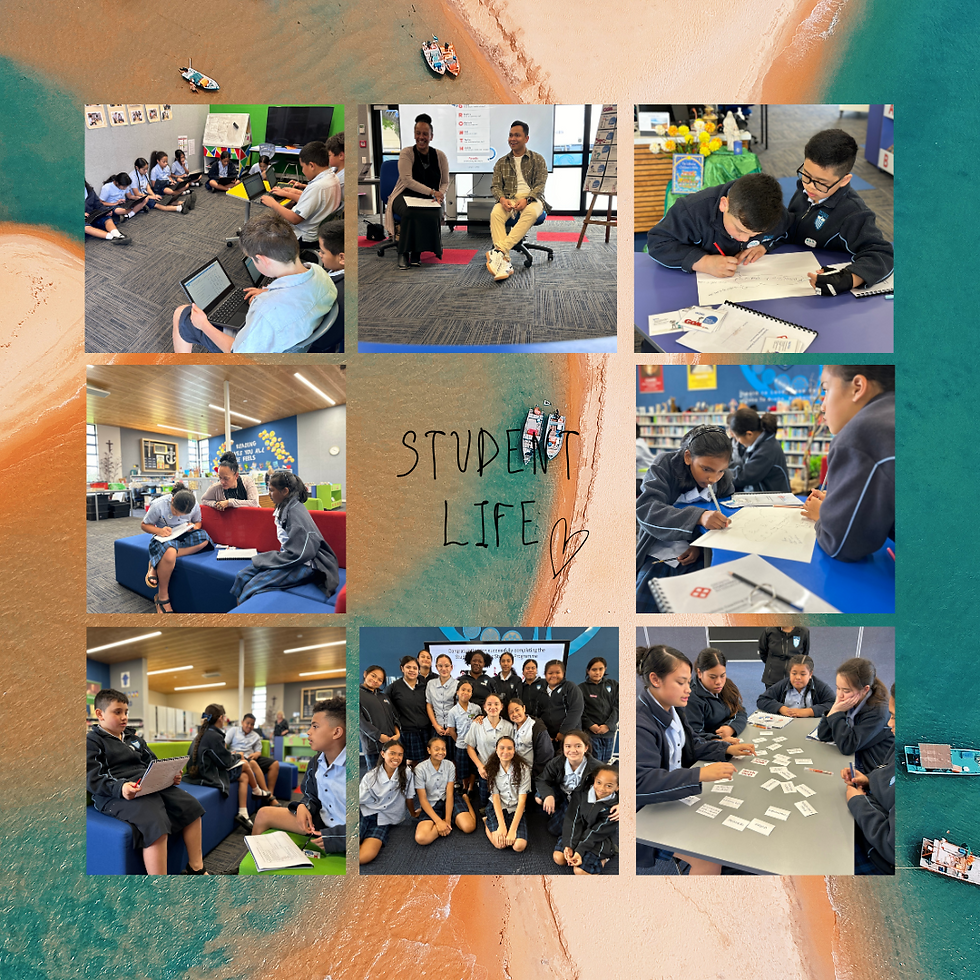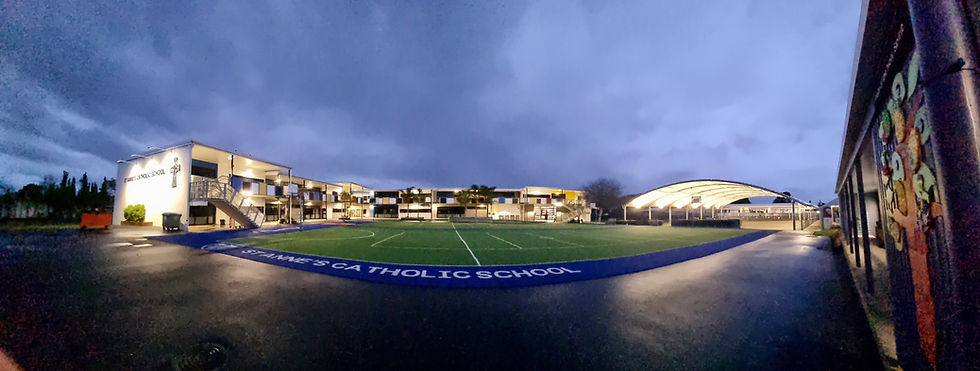
St Anne's Catholic School





WELCOME TO ST ANNE'S
Our school is well recognised for its Special Catholic Character, the high quality of the learning programmes, the high standard of children’s performance and the support received from the St Anne’s parent and parish community.

OUR LEARNING AND TEACHING

Future Focused Learners
Also known as the Y Generation or the Net Generation
Our students our Future Focused Learners!
This means:
-
Life without technology is non-existent;
-
Earlier generations introduced to information through print - this generation takes a digital path;
-
Technology is simply a means to an end;
-
Consistent multi-tasking - simultaneously watches TV; talk on phone; listen to music; interacts with social media etc.;
-
Gravitates to group work - working collaboratively;
-
The ability to move between the real world and the virtual world is instantaneous.

New ways to look at learning:
-
Ubiquitous learning: takes place anywhere, anytime, at any pace and on any learning device. Learning is no longer restricted to the classroom - the physical environment of schools are just a part of the learners experience. Learning continues at home, friend’s homes, on the bus etc. at any time using online technologies.
-
Agency is ‘the power to act’ to be informed, enabled and empowered learners. Opportunities are provided to become more active in their learning; contribute, create and collaborate.
-
Connectedness to others in their learning is collaborating, sharing information, making meaning and constructing new knowledge.
Music

7 Important Skills for Future Focused Learners:
-
Critical thinking and problem-solving
-
Collaboration across networks and leading by influence
-
Agility and adaptability
-
Initiative and entrepreneurialism
-
Effective oral and written communication
-
Accessing and analyzing information
-
Curiosity and imagination
In our learning teams across the school, we strive to encompass all these skills that future focused learners need.

Critical Thinking and Problem Solving
Students will:
-
Think clearly and rationally to analyse and apply it to real life.
-
Have the ability to engage in reflective and independent thinking.
-
Work through details of a problem to reach a solution.
-
Use their prior knowledge and experiences to respond to an unfamiliar situation.

Collaboration Across Networks and Leading by Influence
Students will:
-
Share and learn with others;
-
Work collaboratively schoolwide, nationwide and worldwide through the use of modern technology;
-
Take on a variety of roles to enable the development of influential leadership.
Agility and Adaptability
Students will:
-
think, be flexible and adaptable to change;
-
adapt to a variety of roles, responsibilities and contexts;
-
understand that there can be multiple solutions to a problem.


Curiosity and Imagination
Students will:
-
develop original ideas and create products in a student-centred environment;
-
work collaboratively and independently to analyse, evaluate, refine and improve their ideas;
-
understand that making mistakes is an opportunity to learn.

Initiative and
Entrepreneurialism
Students will:
-
Turn ideas into action.
-
Be involved in creativity, innovation and risk taking.
-
Plan and manage projects in order to achieve objectives.
Effective Oral and Written Communication
Students will be able to undertand what is being communicated
to them through:
-
Voice
-
Written (using printed or digital media such as books, magazines, websites: or emails)
-
Visual aids (using logos, maps, charts or graphs)
-
Non verbal cues (body language, gestures, tone and/or pitch of voice


Accessing and Analysing Information
Students will:
-
Find, evaluate and synthesize information.
-
Use information from a variety of sources (web pages, magazines, podcasts, TV, face-to-face interviews and discussions, videos, surveys, books, etc.)
-
Understand how rapidly information is changing and adjust and adapt to the changes.